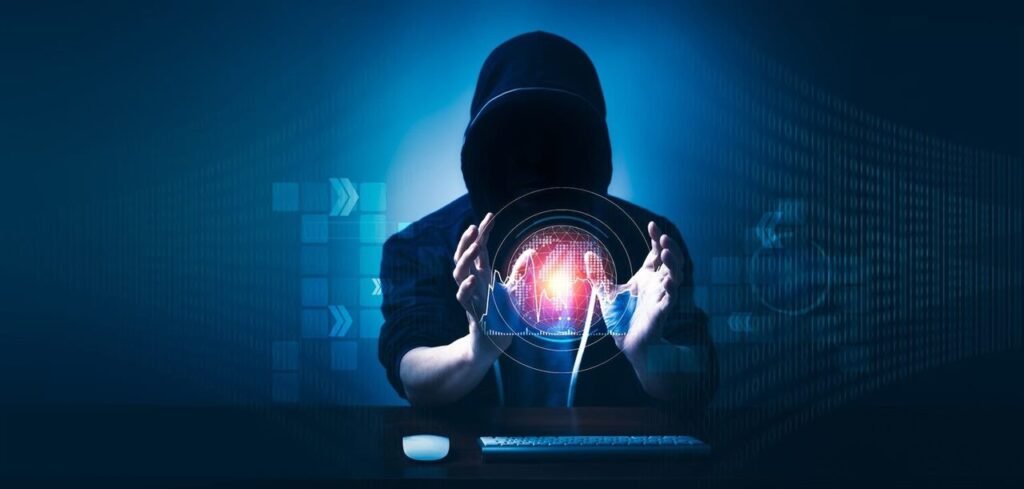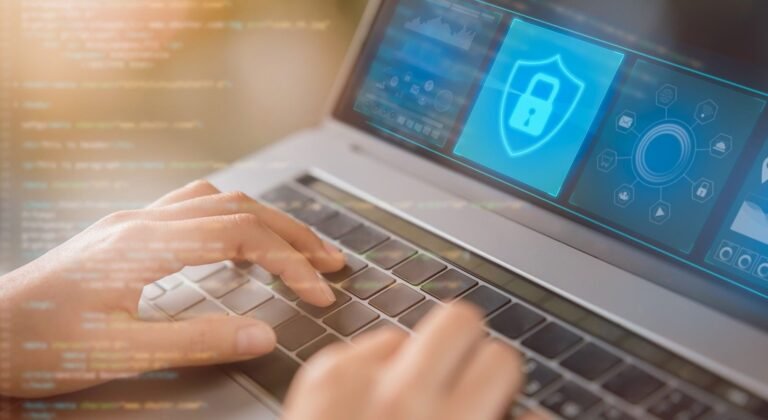A VPN, or Virtual Private Network, is a versatile tool that serves multiple purposes. While some people use it to access content restricted by geography, others rely on it to protect their browsing activities from their Internet Service Provider (ISP). However, many users primarily turn to VPNs for improved security and anonymity. In this post, we’ll provide guidance on how to effectively use a VPN to enhance your online security and maintain your anonymity.
Why You Might Want to Use a VPN for Security
While most internet users are mindful of the risks associated with public Wi-Fi networks, many tend to overlook the vulnerabilities inherent in their home Wi-Fi setups.
A VPN is one of the most effective measures for protecting your data. By encrypting your internet traffic and routing it through a server located elsewhere, a VPN significantly increases the difficulty for hackers to intercept your data, providing an additional layer of security.
Furthermore, the benefits of using a VPN go beyond data protection. It allows users to bypass censorship, granting unrestricted access to the internet. Additionally, a VPN helps unblock geo-restricted websites and enhances online privacy, offering a comprehensive solution for securing your digital activities.

Why Use a VPN for Anonymity
There are numerous reasons why individuals choose to use a VPN for anonymity. Privacy concerns often drive this decision, as users seek to protect their internet usage from their Internet Service Provider (ISP) or government surveillance. Additionally, worries about being monitored or tracked by websites lead some to pursue anonymity online. Ultimately, many users prefer to keep their online activities private from any prying eyes.
Regardless of the reason, using a VPN is an effective way to achieve online anonymity. By establishing a secure connection between your device and the VPN server, all data is encrypted, keeping it hidden from potential intruders. This encryption makes it difficult for any interested parties to track your activities or monitor your online behavior.
Moreover, utilizing a VPN provides extra layers of protection against malware and cyber threats. It can mask your location and grant access to blocked websites and content, further enhancing your online anonymity and security. For more details, visit vpnguid.com.
How to Set Up a VPN for Security and Anonymity
Setting up a VPN is generally straightforward. First, you’ll select a VPN provider and create an account. This guide applies whether you’re using a mobile device, tablet, or desktop computer.
After registering with a provider, you’ll download their VPN software. Next, you’ll install the software, which will allow you to connect to your chosen VPN server. While the process may vary by provider, the fundamental steps remain consistent.
For optimal security and anonymity, connect to a server located in another country. This grants access to websites and services that may be unavailable in your region. Additionally, it encrypts your traffic, protecting your online activities from your ISP’s view.

What Happens If a VPN Connection Fails While I’m on a Remote Connection?
Experiencing a VPN connection failure while on a remote connection can lead to losing access to your company’s network, creating a significant inconvenience, especially during critical work tasks.
To mitigate this risk, several steps can be taken. First, prioritize choosing a VPN provider known for stable and reliable connections.
Second, select a VPN service that offers multiple layers of security. This redundancy ensures that if one connection fails, alternatives are readily available.
Lastly, keep backups of essential files and data. This precaution guarantees access even during VPN downtime, ensuring uninterrupted workflow continuity.
Is It Legal to Use a VPN?
The legality of VPN usage varies across different countries, creating a nuanced landscape rather than a straightforward answer.
In certain nations, such as the US and UK, as well as most of the European Union, VPN usage is entirely legal and commonly utilized by businesses to protect online communications. Conversely, some countries outright prohibit VPNs. In other regions, the legality of VPNs depends on their specific applications.
To determine the legal status of VPNs in your country, independent research is essential. For example, in India, while VPN usage remains legal, a recent law requires VPN providers to disclose user data to the government. As a result, many VPN companies have stopped offering physical servers within India due to this legislation.

What Does Net Neutrality Mean for My VPN Usage?
Net neutrality is the fundamental principle that advocates for equal treatment of all internet traffic, prohibiting internet service providers (ISPs) from throttling, blocking, or discriminating against any form of data transmission.
For VPN users, net neutrality is significant as it ensures that ISP discrimination against VPN usage is not permitted, thereby preserving the speed and reliability of VPN connections.
However, the repeal of net neutrality raises concerns for VPN users. While the full implications remain uncertain, there is a possibility that ISPs might throttle VPN traffic to prioritize other data streams. Although it’s too early to determine the extent of this impact, it’s crucial to monitor developments over time to understand how the repeal of net neutrality might affect VPN users.
Does a VPN Slow Down Your Internet Connection?
Online debates about whether a VPN affects internet speed vary widely. While some argue that VPNs significantly slow down connections, others maintain that there’s little to no difference. To address this debate, we conducted testing.
Using Ookla speed tests, we compared computer speeds with and without a VPN. Our findings revealed that, overall, the VPN had minimal impact on speeds. However, when testing specific websites and services, some slowdown was observed.
Notably, Netflix experienced the most significant slowdown, with internet speed decreasing by approximately 25% when using the VPN. Conversely, other services like YouTube and Spotify seemed unaffected by the VPN’s presence.

Can a VPN Guarantee My Privacy?
A Virtual Private Network (VPN) is widely used to enhance online privacy by encrypting your internet traffic and concealing your IP address through a VPN server. This significantly impedes the tracking of your online activities.
However, it’s essential to understand that a VPN isn’t infallible. While it greatly improves online privacy, it doesn’t guarantee complete security. Determined individuals can still find ways to track your data. Furthermore, even if your data is protected, activity logs retained by the VPN provider could potentially compromise your privacy.
Therefore, while a VPN is a valuable tool for safeguarding privacy, it’s not foolproof. For those who are particularly concerned about online privacy, adopting additional measures, such as using a secure browser and avoiding data-tracking websites, is advisable. For more details, visit vpnguid.com.
Do VPN Providers Restrict Usage and How?
Despite claims by many VPN providers that they impose no restrictions on their services, these assertions often don’t align with reality. In fact, most VPN providers implement various limitations on their usage.
Among the most common restrictions are caps on data usage, constraints on data transfer speeds, and limits on the number of devices that can connect to the VPN simultaneously. While these restrictions can be frustrating, they are typically necessary to ensure the VPN functions smoothly.
For users seeking VPN services without such restrictions, opting for a premium service may be necessary, though this often comes at a higher cost. However, some providers offer unlimited data and device connections at a reasonable price. It’s important to conduct thorough research to identify the VPN provider that best meets your needs.

Is a VPN Slowing Down My Computer?
Concerns about VPNs potentially slowing down computers are common, as VPNs encrypt data and route it through remote servers, which may introduce additional processing time. However, in most scenarios, the impact is minimal.
Modern VPNs are typically designed to prioritize speed and efficiency. When using a reputable VPN provider, any slowdown should be barely noticeable. Naturally, there are exceptions; outdated or poorly designed VPNs might significantly affect speed.
Additionally, connecting to a server located far from your geographical location could introduce some latency. Nonetheless, as a general rule, concerns about VPN-induced slowdowns on your computer are largely unfounded when using a well-maintained VPN service.
What Are the Limitations of VPNs?
VPNs are indeed powerful tools for enhancing online privacy and security. However, they come with certain limitations that users should be aware of:
- They can slow down your internet connection.
- They can be blocked by some websites.
- They may be less secure than a direct connection.
- They may offer less privacy than a direct connection.
Despite these constraints, VPNs remain a valuable asset in safeguarding your online privacy and security. When choosing a VPN, it’s essential to conduct thorough research and select a trusted provider.
Can VPNs Be Hacked?
VPNs can indeed be targeted by hacking attempts. However, the likelihood of such occurrences is generally low, especially if you choose a reputable provider. Cyber attackers often aim to breach VPNs to steal user information or infiltrate corporate systems. If you have concerns about the security of your VPN, there are measures you can take to mitigate the risk, such as using strong encryption protocols and selecting a trustworthy service provider. For further insights, visit vpnguid.com.
Is a VPN Really Necessary?
In essence, yes—a VPN is crucial for protecting your data and online activities. By encrypting your internet traffic, a VPN ensures that your activities remain private and protects your personal information from potential theft. Additionally, VPNs are effective tools for bypassing censorship and accessing restricted websites.
While free VPN services are available, they come with various risks. These services often compromise user privacy by selling data to third parties or bombarding users with intrusive advertisements. Furthermore, free VPNs can be unreliable and slow in performance. Therefore, we recommend investing in a paid VPN service. Paid VPNs offer enhanced security measures and superior performance, making them a worthwhile investment
Global Legality Concerns
Recently, the popularity of VPNs has surged, providing users with a way to bypass restrictions and access content worldwide. However, legal considerations accompany their use.
Different countries have diverse regulations regarding VPN usage. In some nations, VPNs are entirely permissible, while in others, they are prohibited. Additionally, some countries allow VPN usage only for specific purposes.
Before using a VPN, it’s crucial to research the legal landscape of both your current location and the countries you intend to connect to. This diligence ensures lawful and secure VPN utilization.
What Is a Consumer VPN Service?
When it comes to online privacy, security, and anonymity, a consumer VPN service is a reliable solution. By establishing an encrypted tunnel between your device and the internet, a VPN service effectively protects your web traffic from prying eyes.
Additionally, a reputable consumer VPN service enhances your anonymity and safeguards your identity and location by masking your IP address. As a result, you can browse the internet incognito and access restricted content from anywhere in the world.
Consumer VPN services typically offer user-friendly interfaces and a range of features, such as malware protection, ad blocking, data compression, and split tunneling. Therefore, if you’re looking for enhanced privacy and security while browsing the web, a consumer VPN service is an excellent choice.

When Should I Start Using a VPN?
A VPN, or Virtual Private Network, is a service that creates a secure connection over the internet between your computer and a designated VPN server. When you initiate a VPN session, your computer connects to the VPN server, making it appear as if it’s part of the same network. As a result, any data transmitted to or from your computer is encrypted, rendering it indecipherable to other entities on the network.
VPNs serve various purposes, including safeguarding your privacy when using public Wi-Fi networks and gaining access to websites that are restricted in your region. Additionally, they are instrumental in bypassing censorship measures and enhancing your overall online security.
Here are several scenarios where a VPN could be particularly beneficial:
- Protecting Data on Public Wi-Fi: When using an unsecured public Wi-Fi network, a VPN can shield your data from potential hackers.
- Accessing Region-Blocked Content: If you encounter region-blocked content, a VPN enables you to bypass these restrictions and access the desired material.
- Secure File Downloads on Public Wi-Fi: In cases where public Wi-Fi hotspots lack encryption and pose risks to file downloads, a VPN ensures a secure connection for safely downloading files.
- Preventing ISP Data Collection: If you’re concerned about your internet service provider (ISP) tracking your online activities, a VPN can prevent such data collection by encrypting your traffic and obscuring your online footprint.
How Private Are VPNs? Do They Log Everything I Do?
VPNs are valuable tools for enhancing privacy and security while browsing the internet. However, concerns about VPN logging practices are common among users. In this article, we’ll explore the privacy standards of VPNs and whether they log user activity.
First, it’s essential to understand that not all VPNs offer the same level of privacy and security. Free VPNs, in particular, often lack robust privacy measures compared to their paid counterparts. For optimal privacy protection, selecting a VPN that does not log user data is crucial.
While most paid VPNs avoid logging user activity, exceptions do exist. Therefore, it’s imperative to review the Privacy Policy of any VPN you are considering. This document clarifies whether the VPN retains logs of user activities, which could compromise your privacy.
Trusting a VPN provider is integral to its effective use. Unlike other services where password storage is straightforward, entrusting a VPN with sensitive data requires confidence in its privacy practices. Additionally, evaluating a VPN’s track record for information leaks can help alleviate concerns about privacy breaches.
Ultimately, conducting thorough research and scrutinizing a VPN provider’s privacy policies and history are essential steps in ensuring maximum privacy and security while using their services.

Can a VPN Be Used with a Hotel’s Wired Internet Connection?
Absolutely! You can use a VPN if your hotel provides a wired internet connection. In fact, employing a VPN is an excellent way to protect your data while using public networks. By encrypting your data, a VPN ensures that unauthorized parties cannot intercept or view it. Consequently, even if someone were to breach the network’s security, your information would remain inaccessible to them. Additionally, a VPN allows you to bypass restrictions and access blocked websites or content while traveling.
Conclusion
In summary, integrating a VPN into your online routine significantly enhances both your security and anonymity. By encrypting your data, a VPN acts as a formidable barrier against hackers, effectively protecting your privacy. If you haven’t already included a VPN in your online practices, I strongly encourage you to do so. Not only are VPNs user-friendly, but they also play an essential role in ensuring your safety on the internet

